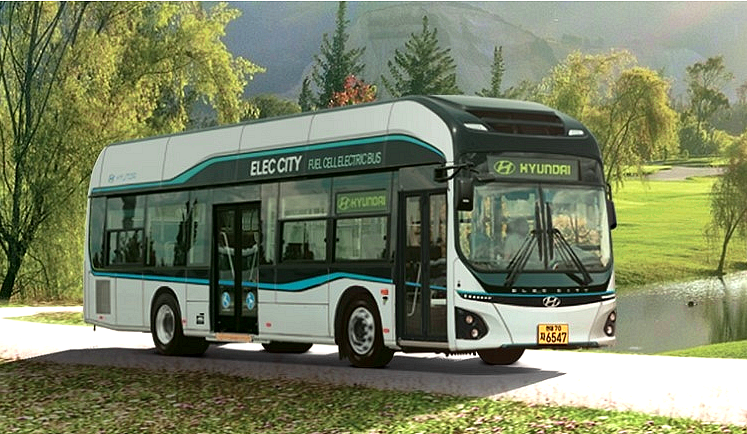
Hyundai Motor Company is set to dramatically increase its hydrogen bus production capacity by six times at its Jeonju factory, from 500 units last year to 3,000 units this year. This strategic expansion is a direct response to the growing competition from Chinese electric buses, which for the first time last year outsold domestic models in Korea.
The Jeonju plant, a Hyundai facility dedicated to large commercial vehicles, has recently undergone significant upgrades. These include the addition of a new hydrogen bus facility at Bus Plant 1 and the completion of a hydrogen production facility within the same complex earlier this year. Hyundai is currently the only manufacturer of hydrogen buses in Korea and relies on its proprietary technology.
This aggressive scale-up in production capability reflects Hyundai’s commitment to assert dominance in the hydrogen-powered bus market, which has not yet been penetrated by foreign companies, unlike the electric bus sector where Chinese manufacturers have made significant inroads. According to Hyundai, this move could increase sales to more than 1,500 units this year, significantly up from about 370 units sold last year.
The Korean government has played a pivotal role in this expansion through the Ministry of Environment, which has set ambitious targets for subsidized hydrogen bus purchases. This year, the subsidy is planned for 1,720 units, a substantial increase from 700 units last year. Each hydrogen bus, a high-cost, custom-made product, ranges from 700 million to 800 million won per unit. Carriers typically purchase these buses with substantial subsidies from both the government and local governments.
The decision to boost hydrogen bus production also comes at a time when there is growing public and governmental concern over Chinese electric buses dominating the market due to their lower costs and sweeping up hefty subsidies. Last year, Chinese electric buses made more sales than domestic buses for the first time, largely due to being over 100 million won cheaper than Korean models.
In light of these developments, the Korean government has adjusted its strategy by increasing the hydrogen bus supply target while cutting electric bus subsidies by more than 30%. This shift also includes modifications to subsidy structures, favoring buses with higher battery energy density and those serviced by directly managed AS centers.
Industry insiders suggest that enhancing the production of domestically produced hydrogen buses, despite their higher price, could serve as a strategic countermeasure to the encroachment of subsidized Chinese electric buses in the Korean market.
Read the most up to date Fuel Cell and Hydrogen Industry news at FuelCellsWorks




